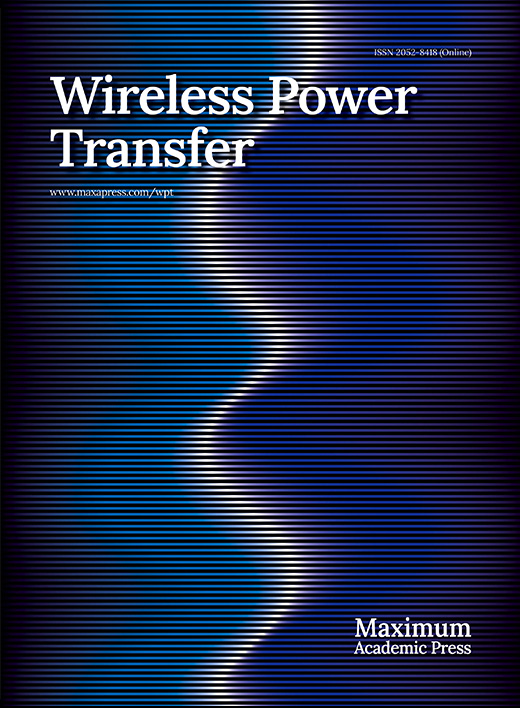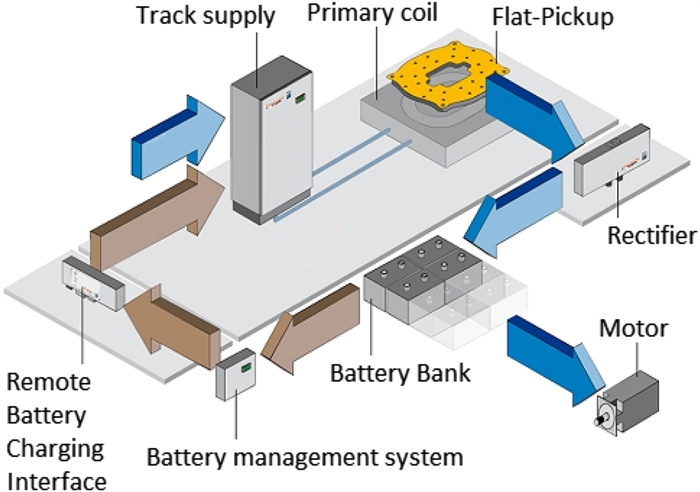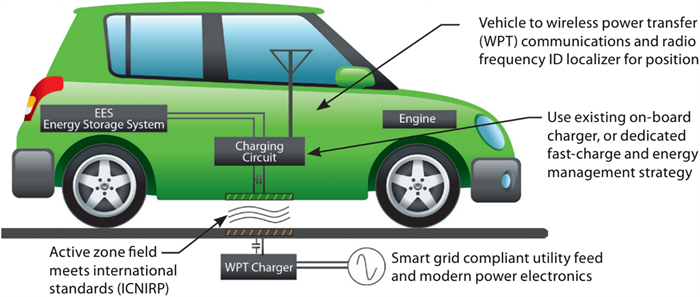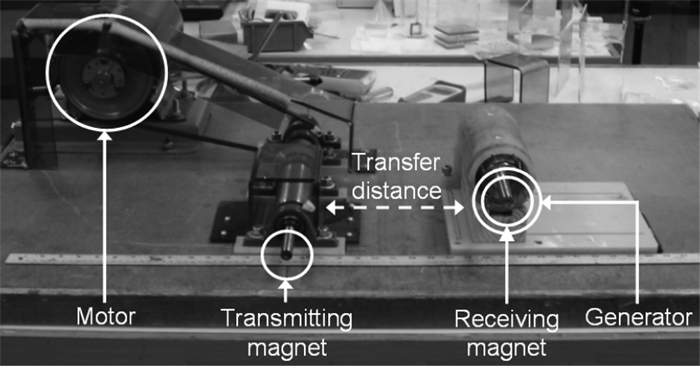Electric vehicle wireless charging technology: a state-of-the-art review of magnetic coupling systems
-
1.
Medical Robotics Laboratory, College of Engineering, The University of Georgia, Athens, Georgia, USA. Phone: +1 706 542 3030
-
2.
Southern Company Services, Inc., Birmingham, Alabama, USA
-
3.
Advanced Power Electronics Laboratory, Electrical and Computing Engineering, Kettering University, Flint, Michigan, USA
More Information
-
Author Bio:
 Taylor M. Fisher
Taylor M. Fisher received her Bachelor's Degree in Biological Engineering from the College of Engineering, the University of Georgia, Athens, GA, USA, with a focus in Biomedical Engineering. She currently works as a scientific editor for the Medical Robotics Lab at the University of Georgia.
 Kathleen Blair Farley
Kathleen Blair Farley is a research engineer at Southern Company Services, Inc, specializing in Electric Transportation. In this role, she evaluates both on-road and off-road forms of electric transportation and their interaction with the electrical grid. She holds a Bachelor's degree in Mechanical Engineering from the University of Alabama at Birmingham and is currently pursuing her Master s degree there with a focus on mechanical driveline efficiency.
 Yabiao Gao
Yabiao Gao is pursuing his Ph.D in wireless power transfer at the College of Engineering, the University of Georgia, Athens, USA. Before joining UGA, he received both Bachelor's and Master's degrees from the Department of Precision Instrument Engineering from Tianjin University, Tianjin, China, in 2009 and 2011, respectively.
 Hua Bai
Hua Bai received his Bachelor's and PhD degrees from the Department of Electrical Engineering of Tsinghua University., Beijing, China in 2002 and 2007, respectively. Bai was a post-doc fellow and research scientist in University of Michigan-Dearborn, USA, in 2007 and 2009, respectively. Now he is an assistant professor in the Department of Electrical and Computer Engineering, Kettering University, MI, USA. His research interests are the dynamic processes and transient pulsed power phenomena of power electronic devices, including variable frequency motor drive systems, high voltage and high power DC/DC converters, renewable energy and hybrid electric vehicles.
 ZionTsz HoTse
ZionTsz HoTse received his Ph. D in Mechatronics in Medicine from Imperial College London. Currently he is an assistant professor in the College of Engineering and the Principal Investigator of the Medical Robotics Lab at the University of Georgia, Athens, GA, USA. Before joining UGA, he was a research fellow at Harvard Medical School and Brigham and Women's Hospital. Dr. Tse has been involved in designing and prototyping a broad range of novel analog-digital electronic devices, most of which have been applied in numerous clinical and industrial environments
-
Corresponding author:
Z.T. Ho Tse Email: ziontse@uga.edu
-
Abstract
Electric vehicles (EVs) are becoming more popular due to concerns about the environment and rising gasoline prices. However, the charging infrastructure is lacking, and most people can only charge their EVs at home if they remember to plug in their cars. Using the principles of magnetic inductance and magnetic resonance, wireless charging (WC) could help significantly with these infrastructure problems by making charging secure and convenient. WC systems also have the potential to provide dynamic charging, making long road trips with EVs feasible and eliminating range anxiety. In this paper, we review the companies available in the literature that have developed electric vehicle wireless charging systems, automobile manufacturers interested in such technology, and research from universities and laboratories on the topic. While the field is still very young, there are many promising technologies available today. Some systems have already been in use for years, recharging public transit buses at bus stops. Safety and regulations are also discussed.
-
About this article
Cite this article
Fisher TM, Farley KB, Gao Y, Bai H, Ho Tse ZT. 2014. Electric vehicle wireless charging technology: a state-of-the-art review of magnetic coupling systems. Wireless Power Transfer 1(2): 87-96 doi: 10.1017/wpt.2014.8
|
Fisher TM, Farley KB, Gao Y, Bai H, Ho Tse ZT. 2014. Electric vehicle wireless charging technology: a state-of-the-art review of magnetic coupling systems. Wireless Power Transfer 1(2): 87-96 doi: 10.1017/wpt.2014.8
|









 Taylor M. Fisher received her Bachelor's Degree in Biological Engineering from the College of Engineering, the University of Georgia, Athens, GA, USA, with a focus in Biomedical Engineering. She currently works as a scientific editor for the Medical Robotics Lab at the University of Georgia.
Taylor M. Fisher received her Bachelor's Degree in Biological Engineering from the College of Engineering, the University of Georgia, Athens, GA, USA, with a focus in Biomedical Engineering. She currently works as a scientific editor for the Medical Robotics Lab at the University of Georgia.  Kathleen Blair Farley is a research engineer at Southern Company Services, Inc, specializing in Electric Transportation. In this role, she evaluates both on-road and off-road forms of electric transportation and their interaction with the electrical grid. She holds a Bachelor's degree in Mechanical Engineering from the University of Alabama at Birmingham and is currently pursuing her Master s degree there with a focus on mechanical driveline efficiency.
Kathleen Blair Farley is a research engineer at Southern Company Services, Inc, specializing in Electric Transportation. In this role, she evaluates both on-road and off-road forms of electric transportation and their interaction with the electrical grid. She holds a Bachelor's degree in Mechanical Engineering from the University of Alabama at Birmingham and is currently pursuing her Master s degree there with a focus on mechanical driveline efficiency.  Yabiao Gao is pursuing his Ph.D in wireless power transfer at the College of Engineering, the University of Georgia, Athens, USA. Before joining UGA, he received both Bachelor's and Master's degrees from the Department of Precision Instrument Engineering from Tianjin University, Tianjin, China, in 2009 and 2011, respectively.
Yabiao Gao is pursuing his Ph.D in wireless power transfer at the College of Engineering, the University of Georgia, Athens, USA. Before joining UGA, he received both Bachelor's and Master's degrees from the Department of Precision Instrument Engineering from Tianjin University, Tianjin, China, in 2009 and 2011, respectively.  Hua Bai received his Bachelor's and PhD degrees from the Department of Electrical Engineering of Tsinghua University., Beijing, China in 2002 and 2007, respectively. Bai was a post-doc fellow and research scientist in University of Michigan-Dearborn, USA, in 2007 and 2009, respectively. Now he is an assistant professor in the Department of Electrical and Computer Engineering, Kettering University, MI, USA. His research interests are the dynamic processes and transient pulsed power phenomena of power electronic devices, including variable frequency motor drive systems, high voltage and high power DC/DC converters, renewable energy and hybrid electric vehicles.
Hua Bai received his Bachelor's and PhD degrees from the Department of Electrical Engineering of Tsinghua University., Beijing, China in 2002 and 2007, respectively. Bai was a post-doc fellow and research scientist in University of Michigan-Dearborn, USA, in 2007 and 2009, respectively. Now he is an assistant professor in the Department of Electrical and Computer Engineering, Kettering University, MI, USA. His research interests are the dynamic processes and transient pulsed power phenomena of power electronic devices, including variable frequency motor drive systems, high voltage and high power DC/DC converters, renewable energy and hybrid electric vehicles.  ZionTsz HoTse received his Ph. D in Mechatronics in Medicine from Imperial College London. Currently he is an assistant professor in the College of Engineering and the Principal Investigator of the Medical Robotics Lab at the University of Georgia, Athens, GA, USA. Before joining UGA, he was a research fellow at Harvard Medical School and Brigham and Women's Hospital. Dr. Tse has been involved in designing and prototyping a broad range of novel analog-digital electronic devices, most of which have been applied in numerous clinical and industrial environments
ZionTsz HoTse received his Ph. D in Mechatronics in Medicine from Imperial College London. Currently he is an assistant professor in the College of Engineering and the Principal Investigator of the Medical Robotics Lab at the University of Georgia, Athens, GA, USA. Before joining UGA, he was a research fellow at Harvard Medical School and Brigham and Women's Hospital. Dr. Tse has been involved in designing and prototyping a broad range of novel analog-digital electronic devices, most of which have been applied in numerous clinical and industrial environments 










